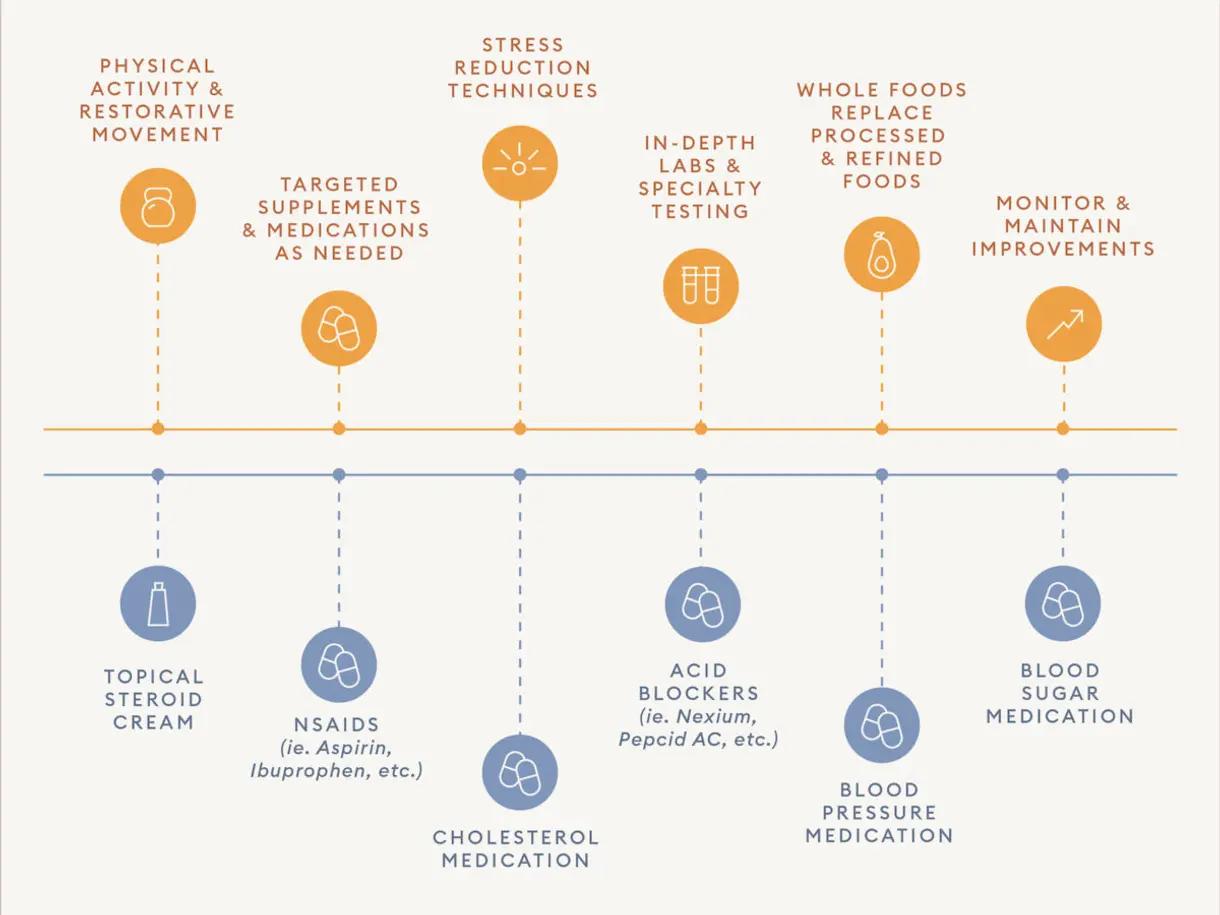What's the difference between functional medicine and conventional medicine? It all comes down to approach.
Functional and conventional (or traditional) medicine use many of the same tools, but functional medicine is about optimizing your health while finding the root cause of health problems. Conventional medicine is about treating disease once it has already appeared, sometimes with "bandi-aid" treatments that deal with symptoms, but not the condition itself.
When I was in medical school, I knew there had to be a better way than the “pill for every ill”-style medicine I was being taught. I also knew “integrative medicine” meant a more holistic, whole-person approach. But when I learned about functional medicine—an evidence-based, high-tech, science-driven approach to holistic medicine—I fell in love, and knew that there was no going back.
My mission at Parsley Health is to make functional medicine available to everyone, because I believe we all deserve the best care possible and because I have seen how it changes lives.

5 reasons why functional medicine is the only kind of healthcare you want
1. Functional medicine keeps you healthy instead of just keeping you alive.
Conventional medicine is great at making sure you don’t die, but its triage approach—waiting for an emergency or severe symptoms to diagnose and treat advanced illness—has nothing to do with improving your health and quality of life today.
2. Functional medicine is personalized.
One-size-fits-all, cookie-cutter medicine doesn't cut it. Functional medicine uses advanced testing combined with listening to your story to piece together a plan that is 100% tailored to you, your health goals, and your life.
3. Functional medicine is always at the cutting edge of science.
In conventional medicine, it takes on average of 18 years for new information to work its way into medical education. Functional medicine, however, is able to take advantage of new research in real time such, like recent discoveries about how the microbiome—AKA the bacteria living in our bodies—impacts our health, because the body is an interconnected matrix, not a disconnected set of organ systems.
4. Functional medicine makes you feel good.
Functional medicine finds and eliminates the root cause of common chronic symptoms like insomnia, fatigue, gas, bloating, and skin rashes. It supports your body’s optimal function with natural vitamins, minerals, and herbs so that you need fewer medications and procedures. It improves your quality of life, boosting energy, clarity, mental well-being, and immunity. It’s about helping you feel your best now and teeing you up for a long, healthy life in the future.
5. Functional medicine changes your life.
How you live each day determines your health and quality of life. Functional medicine teaches you how to live your healthiest every day, supporting you in maintaining that lifestyle despite the many toxic inputs and influences—from chemicals in products and food, to sedentary lifestyles, to chronic stress—that we're all exposed to in today’s world.
Live healthier, longer, with functional medicine.
The reality is this: we all get sick. Functional medicine is designed to prevent and reverse chronic debilitating illness like diabetes, heart disease, and cancer (the number-one killers in modern society), and to deal with temporary things, like viruses and bacterial infections, in a more natural way that does less long-term harm to the body.
Functional medicine also supports you with the guidance and tools to handle life's inevitable challenges so you can live well and generate as much happiness in your life as you can. That’s why I started Parsley Health—a hybrid model of healthcare that combines the functional medicine approach with new care-delivery models that increases access to better medicine for more people.

